Prostatitis is a fairly common disease among sexually active individuals. In most cases, prostatitis drugs are used for treatment. With their help, the causes and symptoms of the disease are eliminated.
Treatment characteristics
There are a variety of medications available to treat prostatitis. Before treating the disease with their help, it is necessary to consult a doctor.
most effective medicine
Many people ask: what medicine is used for prostatitis? Treatment is with antibiotics and anti-inflammatory drugs. With the help of these drugs, prostatitis was eliminated. Treatment is carried out in one course. Alpha-blockers are also required. Men are advised to drink antispasmodics to eliminate symptoms. Although there are drugs that remove the cause of the disease, the mandatory drugs are muscle relaxants. Immunostimulants are also recommended. Stimulate the male body to fight the disease with the help of these prostatitis and increasing potency drugs.
For prostatitis, it should be treated with the help of traditional medicines, which have a positive effect on blood circulation. With their help, the plumpness of the blood vessels is normalized. These drugs are part of a complex therapy. If a person has a chronic disease, it is treated with antibiotics. For prostatitis, traditional medicines in the form of tetracycline and broad-spectrum antibiotics are used for treatment.
Men can be treated with the aid of tablets, suppositories, solutions, drips, and the like. Candles have analgesic and antibacterial properties. They are introduced into the anus after sanitation procedures. With the help of injections, the active substances of traditional medicines quickly enter the affected area. Not only do they strengthen the immune system, but they also eliminate signs of pathological conditions. Drips fall into the category of procedures that introduce traditional medicines into the body through the urethra. In tablets, tetracyclines, fluoroquinolones, penicillins are recommended.
After completing the course, representatives of the stronger gender will experience an increase in potency. He will notice a significant increase in the duration of intercourse. The level and quality of erections will be significantly improved. To eliminate the disease, a variety of medications are available, depending on individual characteristics, symptoms, and causes.
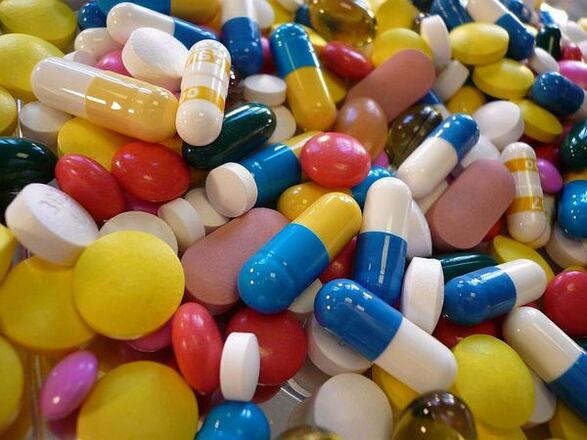
How to treat male prostatitis? In medical practice, there are many ways to combat pathology, but the most effective is drug therapy. It lays the foundation for the effective treatment of the disease, complemented by physical therapy methods to achieve the greatest possible effect.
Based on the results of preliminary examinations, specialists prescribe an effective drug complex that reduces pain, improves blood circulation in the pelvic organs, stabilizing ability and the function of the immune system, locates and eliminates the main pathogenic infection, reduces inflammatory responses, prevents prostate cancercongestion. Not only did they improve the patient's health, but they also contributed to his speedy recovery.
What kind of medicine is used to treat prostatitis? Urologists use medications, most often antibiotics, drugs to improve circulation, pain relievers, microenemas, hormonal medications, suppositories, and antidepressants. Let's talk about their role in more detail.
Antimicrobial therapy
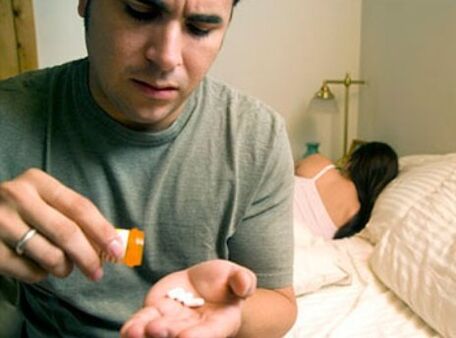
Antibacterial therapy is a fairly effective way to treat prostate inflammation. It quickly and reliably locates the infection that causes the inflammatory process and helps to rapidly eliminate the main pathogen of the disease, it is only prescribed in certain cases, when there are appropriate indicators and the severity of symptoms increases. Pathology and its periodic deterioration.
How is prostatitis treated with antibiotics? Considering the sensitivity of the patient's bacterial flora, experts combine these drugs with prostate massage, physiotherapy, physiotherapy, and several other immune-boosting and pain-relieving medical products. Take antibiotics under the supervision of a doctor for 28 weeks (at least).
For parenchymal and follicular prostatitis, it is recommended to use them in various combinations and high doses until the desired clinical effect is obtained. There are broad-spectrum antibiotics and fluoroquinolones.
Fluoroquinolones and their role in effective therapy
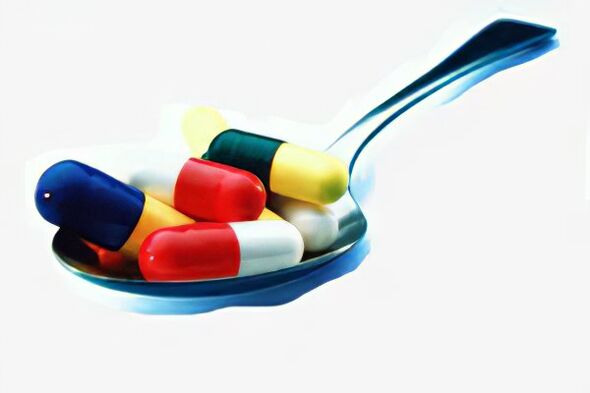
This group of preparations is used for the treatment of infectious and congestive prostatitis. Their significant advantages over other antibacterial agents include a broader antibacterial effect and the ability to accumulate in high concentrations in the prostate when taken orally. Fluoroquinolones do not cause immunodeficiency and are not prone to microbial resistance.
How to treat the prostate with these antibacterials? Experts prescribe a prescription to provide decongestant, anti-inflammatory, and analgesic effects after a thorough examination and determination of the exact cause of the pathology. Treat with these drugs for four weeks under bacteriological and clinical control. Their admissions can be extended to 16 weeks with positive outcomes.
In addition to antibiotics, what other drugs can treat prostatitis? Experts also recommend drugs that improve prostate microcirculation.
Means to Improve Prostate Microcirculation

Antimicrobial agents are considered to be the most effective for bacterial and infectious inflammation of the prostate. Such drugs are required in almost all cases of acute prostatitis caused by pathogenic microorganisms.
Self-administration of antibiotics, uncontrolled intake, on the advice of a friend, or online use of such drugs is strictly prohibited. Only a qualified doctor can determine which medications are needed in a particular situation based on the test results. Some patients require a combination of several types of antibiotics. Determining the type of medication, dosage, regimen, and duration of treatment is well within the urologist's ability.
How and how to treat congestive prostatitis? It is better to take drugs that not only affect the microflora of the prostate, but also help to restore the microcirculation in it, improve the outflow of glandular secretions, increase the intensity of metabolic processes in the inflamed area, as well as general and local resistance.
These include NSAIDs and decongestants.
The role of non-steroidal anti-inflammatory drugs
These drugs are actively involved in the treatment of congestive and chronic prostatitis. They have a positive effect on the microcirculation, improve the blood circulation of the pelvic organs, the outflow of secretions, reduce the inflammatory process, help to normalize the quality of urination and sexual performance, increase the potency and normalize the general physical condition of the patient.
NSAIDs should only be used as prescribed by the attending physician. Only he knew which medicine would treat prostatitis in each case. Self-medication will not have a positive effect, it will only make it worse.
Decongestants - when are they appropriate?
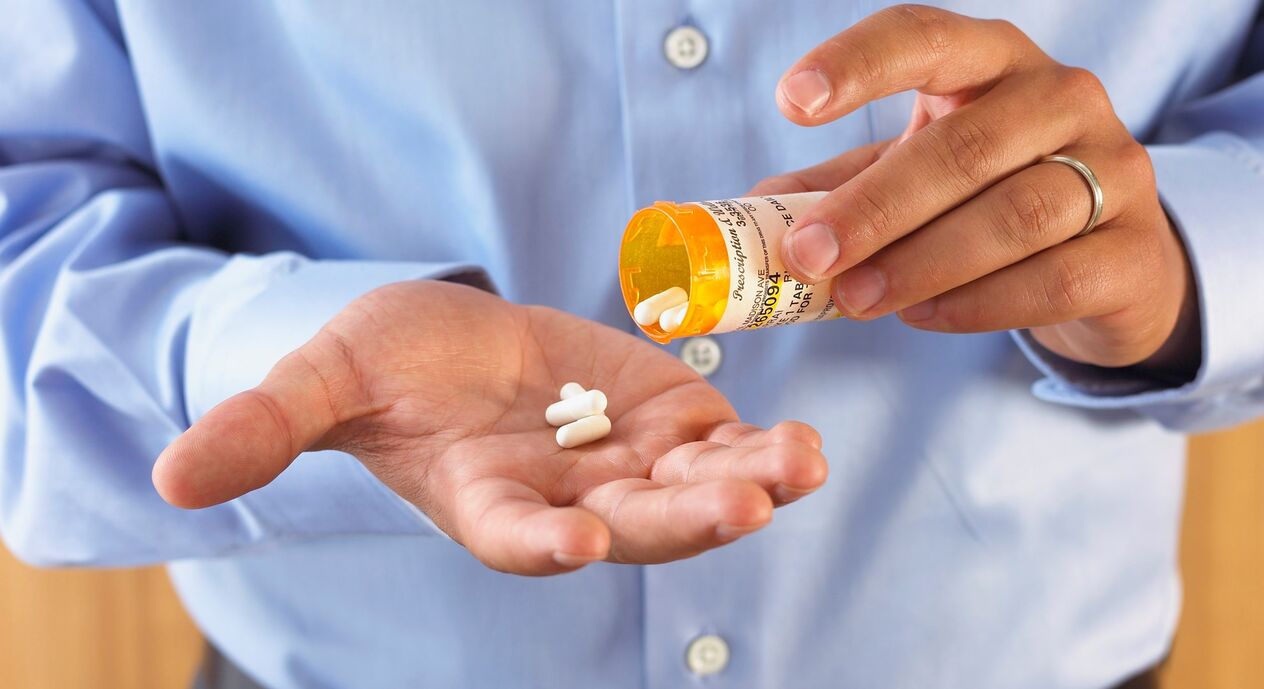
The goal of treatment with decongestants is to reduce prostatic smooth muscle tone and pelvic venous stasis. It is combined with physical therapy exercises and requires an active lifestyle, regular sex with a regular partner, cessation of intercourse interruptions and bad habits.
Decongestant acceptance is limited to varicose veins, cardiovascular disease, hypertension, and hemorrhoidal veins.
It should only be recommended by a urologist who is familiar with the patient's medical history and has carefully studied complex diagnoses. Only he knows how to treat pathology properly. There is nothing other unwitting experts can do.
Analgesic treatment
In addition to antibiotics and drugs to improve the microcirculation of the prostate, prostatitis is treated with drugs that reduce the degree of pain syndrome, which determines the patient's attitude to pathology and affects the presentation of depressive states. These include oral pain relievers.
Oral analgesics and their status in pathological treatment
Oral analgesics are medicines that are taken by mouth. They have temporary pain relief and change the tone of the glands. They are prescribed by urologists according to the degree of manifestation of disease symptoms, taking into account the patient's allergic reactions and comorbidities.
drip therapy
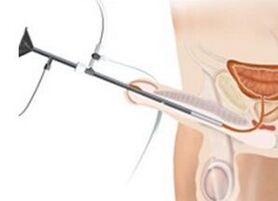
Drip therapy is a set of techniques that allow you to deliver medication directly and directly, exactly as directed. Instillation involves the use of a conventional syringe with a syringe or a soft hollow tube to introduce a special drug mixture through a small opening in the urethra, which consists of the same drug that is administered orally, allowing for a variety of modalities, choosing which is largelyDepends on the nature, stage and type of pathology, and the compatibility of the drugs used.
The drug solution used need not be pharmacological. Many times, the introduction of natural products, such as sea buckthorn or rosehip oil, is prescribed, which can relieve inflammation, speed up tissue healing, and help restore the function of affected organs.
Suppository therapy
Regardless of its composition, candles have a pronounced psychotherapeutic, anti-inflammatory membrane-stimulating effect. Not only do they relieve inflammation, but they also reduce pain levels several times over and improve the process of urination, blood circulation and secretions. How to Treat Your Prostate More Effectively: Candles or Pills?
Candles work much faster because the medicinal substances they contain penetrate to their destination in sufficiently high concentrations compared to those contained in traditional oral preparations. They also have no damaging effects on the liver and gastrointestinal tract.
Micro-enemas are effective treatment for inflamed prostate tissue
Micro-enemas are one of the most effective ways to treat inflammation of the glands.
They are simultaneously analgesic, anti-inflammatory, thermal and medicinal, helping to recover quickly and relieve pain several times. For the greatest possible effect, doctors recommend their use in combination with antibiotic therapy as the final stage of a more aggressive procedure.
The conditions under which the drug is most effective
In order to maximize the effect of drug therapy on prostatitis, experts recommend:
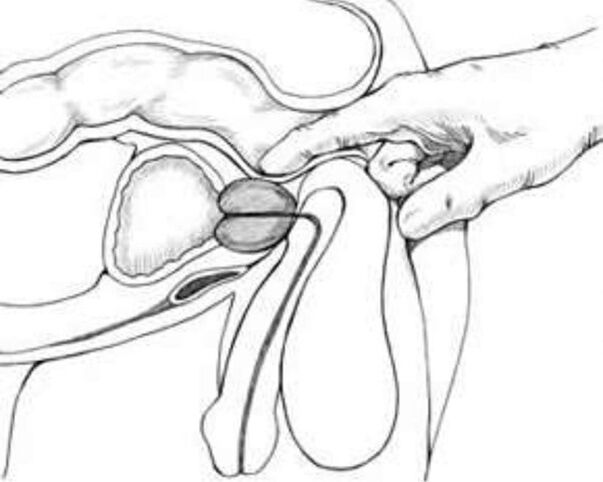
- Extremely accurate isolation and identification of pathology-causing microflora and determination of their susceptibility to antimicrobial agents;
- Choose the most effective drug with the fewest side effects;
- determine the effective dose, method and frequency of administration, taking into account the characteristics of its effect;
- Prompt treatment and antibacterial therapy of sufficient duration to provide the greatest possible outcome;
- Combining antimicrobials with other drugs and procedures that enhance antimicrobial action, improve prostate microcirculation, and reduce complication rates;
- Complex treatments are performed taking into account the characteristics of the general health of the patient.
No matter which doctor treats prostatitis: urologist, sexologist, venereologist, or andrologist, patients must strictly follow these recommendations.
Results of drug therapy for prostatitis
Drug therapy is a treatment technique with complex strategies and strategies that can improve treatment outcomes multiple times. After a successful implementation, the patient's health is several times better, the pain sensation disappears for a while, and as a result - there is no depressive state and nervousness.
In addition, drug therapy increases local and systemic resistance and guarantees long-term remission.
Tips and Advice from the Experts
How to recover faster and better from prostatitis?
Doctors recommend a course of antibiotic therapy in addition to other treatments for infectious inflammation of the prostate. If the pathology is caused by factors such as psycho-emotional overload, frequent hypothermia, constant mental stress, a sedentary lifestyle, and malnutrition, then you need to start by adjusting your lifestyle.
Physical therapy must be used, and comorbidities that may cause or trigger prostatitis cannot be ignored. Under no circumstances should you self-medicate and use traditional medicines without the prior consent of your doctor.
Treatment of prostatitis requires a comprehensive approach: medication combined with diet, active lifestyle, physiotherapy, prostate massage, physiotherapy exercises, symptomatic treatment, treatment of concomitant diseases and psychotherapy will provide immediate results and helpfor the patient's early recovery.
What medicine can treat prostatitis at home
Pharmacological treatment of prostate inflammation is considered to be the most effective. It can start at any stage of the disease.
Medication includes many medications for treating prostatitis at home.
antibiotic
This includes tetracyclines and penicillins. Their purpose depends on the current form of the disease. Experts also focus on the type of inflammation -- recurrence or worsening. Antibiotics work to eliminate the infection. Drugs are used in suppositories, ointments, tablets, injections.
nonsteroidal anti-inflammatory drugs (NSAIDs)
The ingredients in these medicines are diclofenac and ketoprofen. Initially used to reduce swelling and relieve pain.
alpha blocker
This type of preparation relaxes the muscles of the urethra. They do not treat prostatitis, but eliminate the symptoms caused by the inflammatory process.
antispasmodic
Medications to relieve pain. The muscles of the perineum become smooth and relaxed after taking this medication. Also at home, urination is normal.
pain reliever
Designated to soothe musculature, muscles. Experts recommend that men take dimethoate twice a day - in the morning and before bed.
Macronutrients and Vitamins
In the treatment of prostatitis, the immune status is important. Symptoms may be worse if the immune system is lowered. Vitamins and essential elements are important for the male body.
zinc. It can be purchased at pharmacies. It is a natural immune modulator. Adult men are almost always deficient in zinc. A lack of this essential element can lead to urinary tract problems. Zinc is also present in food (red meat).
Vitamin A. With medication, doctors always prescribe vitamin A. It helps restore the prostate and normalizes testosterone synthesis. It is found in pumpkin and eggs.
Anticholinergics
These drugs normalize the function of the genitourinary system.
What else can you eat with prostatitis
Treatment of prostatitis is usually based on medication. They are effective, but in any case, the duration of treatment is at least one month. It sometimes takes about a year to treat prostatitis because the neglected disease can affect third-party organs of the genitourinary system.
Doctors don't just prescribe antispasmodics and broad-spectrum antibiotics. Also consider antidepressants and hormonal medications. The former need support for the men's nervous systems because when they hear a diagnosis of "prostatitis, " they start to worry about their bankruptcy. It is best to eliminate the obvious symptoms of prostatitis at home with the help of high-quality medicines, because the nervous system of men is prone to psychosis and neurosis at this time.
Hormonal medications prescribed by doctors can correct a man's hormonal background. Prostatitis significantly "kills" the entire genitourinary system. Therefore, it is important to seek medical help and start treatment (medication) promptly.
Medical treatment of an inflamed prostate should be comprehensive. Two or three drugs with different effects are prescribed. Each of them affects certain functionality. After the first dose of the drug, a reduction in pain and a burning sensation in the perineum can already be observed. A week later, the man noticed that his nighttime sleep had become more restful after the initial prostatitis treatment.
Treatment is based on antibiotic therapy. Based on the man's complaints and his medical history, the urologist developed a medication regimen that would make the man's life easier as quickly and gently as possible.
Any medication for prostatitis can be treated at home. Some medicines are prescribed by doctors, and the rest can be purchased freely. Treatment at home has a beneficial effect on the course of the disease. The most important thing for a man is to take the medicine on time and follow all the advice of the doctor.





























